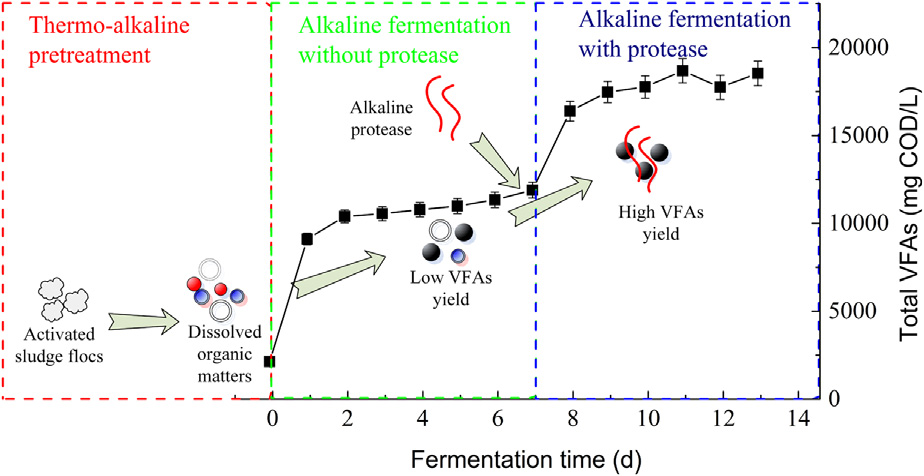Improving volatile fatty acids production by exploiting the residual substrates in post-fermented sludge: Protease catalysis of refractory protein
Bo Yin, Hongbo Liu, Yanyan Wang, Jie Bai, He Liu, Bo Fu. 全文下载
School of Environmental and Civil Engineering, Jiangnan University, 214122 Wuxi, Jiangsu Province, China
Jiangsu Key Laboratory of Anaerobic Biotechnology, 214122 Wuxi, Jiangsu Province, China
Jiangsu Coorperative Innovation Center of Technology and Material of Water Treatment, 215011 Suzhou, Jiangsu Province, China
The real cause to the low yield of volatile fatty acids (VFAs), from inhibition or low biodegradation, is uncertain in sludge anaerobic fermentation. In this study, poor biodegradability of proteins and fast decrease of the indigenous hydrolase activity in the residual post-fermented sludge were found to be the major reasons. With the addition of trypsin or alkaline protease in residual post-fermented sludge after primary alkaline fermentation, degradation efficiency of refractory protein increased by 33.6% and 34.8%, respectively. Accordingly, the VFAs yields were improved by 69.7% and 106.1%, respectively. Furthermore, the activities of added trypsin and alkaline protease could maintain at 13.52 U/mL and 19.11 U/mL in the alkaline fermentation process. This study demonstrated that exploiting the refractory proteins in residual post-fermented sludge by protease addition seems to be a very promising way for improving VFAs yield of conventional alkaline fermentations with waste activated sludge.
Waste activated sludge; Alkaline fermentation; Residual substrate; Volatile fatty acids; Protease;

Bioresource Technology
Elsevierjournal
10.1016/j.biortech.2015.12.029
2016
124-131
Elsevier Ltd
